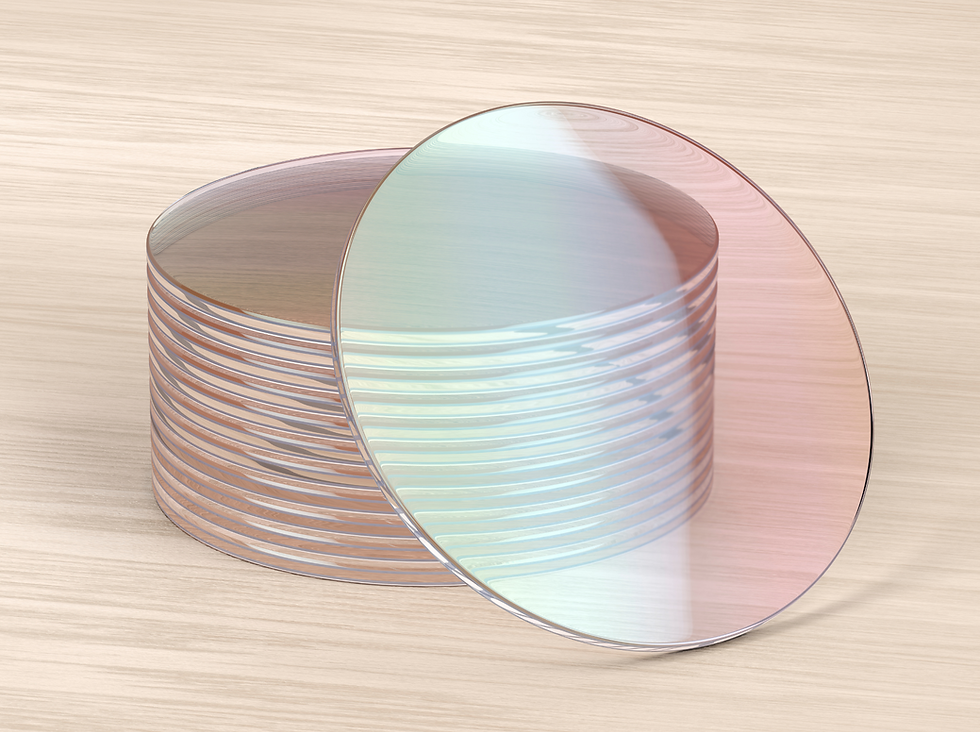Carotenoids for Eyes: Lutein and Zeaxanthin
- Maria Bogoeva

- Jan 8, 2024
- 2 min read
Lutein and zeaxanthin are carotenoids - pigments found in fruits and vegetables. They are widely considered to be powerful supplements for the eyes. Carotenoids have potential advantages in promoting eye health. For instance, preventing age-related eye conditions, and maintaining vision.
If you want to learn more about the benefits of lutein and zeaxanthin, read on:
Introduction to Lutein and Zeaxanthin
Lutein
Let's start with the source of lutein. The carotenoid occurs naturally in high levels in green leafy vegetables like spinach, kale, and collard greens. It's also present in foods like corn and egg yolks. Nuts, in particular - pistachios, are also an excellent source of lutein.
Lutein is a powerful antioxidant, as it protects the eyes from harmful high-energy light waves like UV rays. There is a large concentration of it in the retina, more so in the macula - responsible for central vision.
The benefits of lutein for the eyes are so many! From lutein filtering out blue wavelengths of light that can damage cells in the eyes to lowering the risk of developing age-related macular degeneration (AMD) and cataracts.
Zeaxanthin
Like lutein, the source of zeaxanthin is green leafy vegetables. The carotenoid is also prevalent in orange and yellow fruits like citruses and mangoes. Also in vegetables like carrots and yellow bell peppers. Goji berries are a rich source of zeaxanthin, too.
Zeaxanthin has a supplemental role in maintaining good eye health. Along with lutein, zeaxanthin concentration is in the macula of the eye. Which makes it so essential for maintaining healthy vision. The carotenoid also acts as an antioxidant and offers natural eye protection from oxidative stress.
As for its benefits, similar to lutein, zeaxanthin is associated with a low risk of AMD and cataracts. The combination of lutein and zeaxanthin in the diet may have a powerful synergistic effect in supporting eye health.

Carotenoid Supplements for Healthy Eyes
Due to their conceivable benefits for eye health, you can easily find lutein and zeaxanthin eye supplements. They are helpful for individuals who may not get sufficient amounts of these carotenoids through their diet.
The dosage recommendations vary. There is no established tolerable upper intake level (UL) for lutein and zeaxanthin. That's because they are well-tolerated in normal dietary amounts. Common doses may range from 10 to 20 mg of lutein and 2 to 4 mg of zeaxanthin per day.
While lutein and zeaxanthin are generally safe, consuming excessively high doses of any supplement may lead to toxicity and side effects. Potential adverse effects are digestive issues, skin yellowing (carotenodermia), or other skin pigmentation. These effects are more likely with very high doses.
Before starting any supplements, consult an eye doctor.
Other Nutrients for Eye Health
A balanced diet rich in fruits, veggies, and whole foods provides a spectrum of nutrients. Along with lutein and zeaxanthin, nutrients like vitamins C and E, zinc, and omega-3 fatty acids also contribute to eye health.
Learn more about these nutrients:
Checked by Atanas Bogoev, MD.







